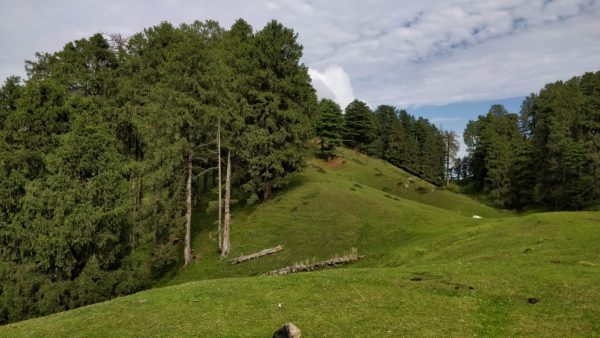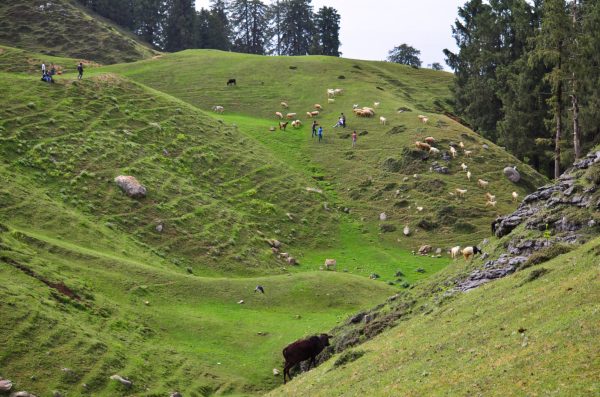The funny thing is that we humans believe that everything that is born will eventually die. But nothing dies. Nothing disappears forever. Moments of disorientation, sadness, anger, discontent, ill-will, hatred, live on just as moments of love, harmony, contentment, camaraderie, and togetherness do. They do not come and stay forever but also do not suddenly disappear forever. They appear alone, in pairs, or as a boisterous crowd in combinations that are always mind-boggling and defy any single definition. There are no defined cycles and their incursions are invariably unpredictable.
Really? Most of us would love to believe that the good, bad, and ugly come in phases and pass on. We live believing that every bad moment will eventually hop on a path that leads it away from our life and then everything will be just fine, forgetting the same happens with good moments as well. Don’t we relive all kinds of moments? Don’t we read stories and chronicles in books that have been true for someone at some time? Have the horrors of murderers, rapists, just and unjust wars left us without a trace? Do scars really heal? Do pleasant moments happens and fade away forever? Aren’t we still excavating bits and pieces of the past and stringing them together to complete the picture of a natural disaster or some human-induced calamity that had come suddenly or was pre-meditated to make entire civilizations vanish? Or to understand all the wonderful things they had achieved?
Even if we were to burn and destroy all archives of all the good and evil done in the past, they will live on riding the immortal pulses of time. Even in individuals, every good and bad moment somehow lingers and nudges suddenly when we are least expecting it. But the point that I am trying to make is that the phrase ‘this too shall pass’ needs to be understood correctly.
Two stories before ‘this too shall pass’ can be understood
Story 01 is from the Mahabharata:
The Pandavas were mentally shattered when they were told that they were to go in exile. The situation leaves them desolate and wondering if they were the only ones forsaken even by the Gods. It was in such a state of mind that Yudhishtra asks Lord Krishna for advice. Krishna scribbles a message on a leaf, folds it carefully, and hands it over to him, saying, ‘Read this when you are in an impossible situation.’ Years later and after facing tough times, a moment comes when even Yudhishtra believes that he needs a divine intervention to go on any more. He opens the leaf and reads, ‘This too shall pass!’
Story 02 – a Turkish tale:
A Dervish once travels to a village and asks for the richest man there who can feed him and allow him to spend a night there. He is asked to meet Sakir. The Dervish is treated well and when he expresses his thanks, Sakir says, ‘Everything comes and goes. This too shall pass.’
The Dervish then goes on his way and returns after a few years to find that Sakir is now working for someone and is no more the richest man. The Dervish goes to him to express his sorrow at this turn of events but Sakir tells him not to worry as ‘This too shall pass.’ The next time when the Dervish visits, Sakir is again a wealthy man but has the same message.
After a few more years when the Dervish again passes the village, he is told that Sakir is no more and on his grave, the tombstone reads: ‘This too shall pass’. The next time when the Dervish comes to the village he discovers that because of a natural calamity, the grave too has disappeared.
The Dervish then travels to the capital where the Sultan asks him to guide the royal jeweler to make a ring with some divine message. The Dervish asks the jeweler to make a simple ring with a sad face on one side and a happy face on the other. When the Sultan is presented the ring, he asks what it means. The Dervish replies, ‘When times are bad, turn the ring so the happy face is visible. When everything is fine, turn the ring again and you shall know that nothing remains forever.’ The Dervish pauses and adds, ‘The message in both cases is that this too shall pass.’
What does this too shall pass really mean?
I believe the phrase ‘this too shall pass’ is all about a balanced acceptance of the truth of existence. ‘Life is like riding a bicycle,’ wrote Albert Einstein, ‘To keep your balance, you must keep moving.’ I had gone trekking to the Valley of Flowers a couple of months back and there were times when the climb got really tough. There were moments I felt it was not possible to keep going. But then I remembered what Winston Churchill had once said, ‘If you’re going through hell, keep going.’ Quite obviously, I kept going and finally did reach the valley and was able to click some charming pictures there.
There is another incident that I remember from my trip to the Andamans. We had gone to this island where there was a lighthouse somewhere at the top of a hill and beyond the forested area. Everyone was content with splashing around in the shallow sea but Specky (my wife) and I decided to climb up. The first few yards were terribly difficult as there was no path and walking through the wild undergrowth was painful. There were other tourists asking us to come back. But we went on huffing and puffing… and after what appeared as a very long time, we were tired, messed up, and looked at each other, ‘I think we must turn back. The lighthouse is probably too far and now we’re exhausted.’ But then Specky pointed to another set of thickly placed trees in the distance above and said, ‘We’ll cross those trees and then turn back.’ We trudged upwards and… and yes, the lighthouse quite literally appeared magically. Imagine the tree-line disappearing suddenly to give way to a massive clearing where the lighthouse was… this was one of the highlights of our trip because we got what we wanted simply because we kept going. Keep going and ‘this too shall pass’ will become a pleasant reality. This is what we experienced another time when we were climbing to Budher caves near Chakrata… just as we were about to give up, the tree line disappeared and we found ourselves at the edge of the most charming bugyals or mountain meadow in the region… and then we laughed. Meadows on the top of the mountains and the caves were somewhere there!
Had we not kept on going we would still be thinking of those moments as somewhat tough unsuccessful climbs… but those climbs are now etched in our minds as powerfully magical ones. The moment would have anyway passed… but the accompanying memory would have been altogether different. I believe that repeating ‘this too shall pass’ with or without that extra bit of effort has the power to change its meaning and interpretation. Leave a task mid-way and ‘this too shall pass’ has a sad and resigned tone to it. Keep on at whatever it is that you’re doing and the same phrase bounces and dances happily. Your choice is what is going to transform a memory into something pleasantly mesmerizing or probably hauntingly excruciating. But remember, nothing ever disappears.
.
.
.
.
.
.
Arvind Passey
19 November 2018












10 comments
Parmita Borah says:
Nov 19, 2018
Beautiful thoughts. I am glad I read it right before bedtime. What a wonderful and positive note to end the day with. Tonight I will sleep with the awareness that whether I am met with a pleasant dream or a nightmare – this too shall pass.
Thanks for a wonderful post! Made my evening ??
Arvind Passey says:
Nov 20, 2018
Thank you, Parmita… 🙂 Do read the other posts whenever you get time.
Matheikal says:
Nov 20, 2018
True nothing ever disappears. That’s why we have to remind ourselves that this too will pass. ?
You have taken a very philosophical look at the topic. It’s an enlightening read.
Arvind Passey says:
Nov 20, 2018
Thank you, buddy… and the topic that you have suggested for this week is fascinating. 🙂
Abhijit says:
Nov 23, 2018
Nice post. You gave great examples. True in life only thing certain is change. So this too will pass is an apt prompt. Pictures were nice too.
Arvind Passey says:
Nov 28, 2018
Thank you, buddy… nice to have you reading this and other posts.
Kesari says:
Dec 6, 2018
This is amazing! Absolutely great tips. I LOVE your photos. True nothing ever disappears.
Arvind Passey says:
Dec 10, 2018
Good to see you back. Just uploaded another post on the relationship between wildlife, conservation, and the social media. Do read.
sweta says:
Dec 8, 2018
Great combination of stories and your trip. The way you have related examples are fascinating.
Arvind Passey says:
Dec 10, 2018
Thank you, Sweta. Just uploaded a post on conservation, wildlife and the social media… I’m sure you will love reading this one. 🙂